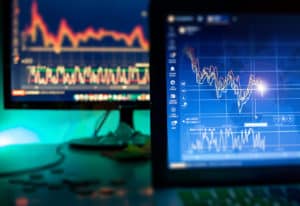 Front office outsourcing is expected to surge over the next couple of years, as asset managers struggle to keep on top of regulatory and cost pressures according to new research.
Front office outsourcing is expected to surge over the next couple of years, as asset managers struggle to keep on top of regulatory and cost pressures according to new research.
A study carried out by consultancy Opimas on the outsourcing trend predicted that by 2020, around 20% of investment managers with assets under management greater than $50 billion will outsource at least some portion of their trading desks.
The shift towards passive investing, more difficult market conditions and increased regulatory burdens associated with the introduction of MiFID II in Europe, have put strain on operating costs for the buy-side. These factors have prompted an increasing number of buy-side firms to review their trading functions and consider outsourcing all or part of their trading desks.
“The basic rationale for outsourcing revolves around reduced operational costs and improved execution quality. In practice we have found that the reduction in operational cost is far more important than execution quality,” the report stated. “While improvements in execution quality in the range of 15-20 basis points have been demonstrated, this is typically only for very small funds that do not have the necessary scale to deploy highly professional traders and systems. Execution quality improvements for larger trading operations are very limited, if discernible at all.”
Hermes Investment Management entered into an agreement with outsourced trading provider CF Global in 2012 to create an outsource trading desk focused on equities from emerging markets and non-Japan Asia. Hermes took a ‘hybrid’ approach to outsourcing, meaning it combined its in-house centralised dealing desk with an outsourced dealing desk.
Opimas concluded that it expects to see more asset managers of this scale move towards a hybrid trading model in the future. As a result, providers of outsourced trading services are seeing their activities grow rapidly and revenues for some are anticipated to increase at rates of 20% to 30% annually.
“The future for outsourced trading desks looks bright and, in coming years, we expect an increasing number of even large asset managers will move to at least hybrid trading desks, with some portion of their trading activities outsourced. This will typically be for asset classes where the fund managers have insufficient scale to justify the cost of full-time traders. Most frequently, this will involve foreign equities in different time zones, where staffing becomes problematic,” the research concluded.